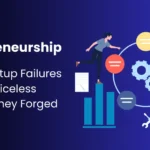Entrepreneurship is the spark that transforms ideas into action and vision into reality. It’s not just about launching a company—it’s a mindset, a way of seeing opportunities where others see obstacles, and a commitment to shaping your own path. Whether you’re dreaming of launching a product, solving a community problem, or building a scalable digital brand, the journey begins with understanding what it really means to be an entrepreneur.
It’s a bold decision to take control of your career and future by starting something of your own. It requires not just an idea, but the courage to act, the discipline to plan, and the adaptability to grow. This guide explores every essential aspect of that journey.
What Entrepreneurship Really Means Today
A Modern Definition
In today’s world, being an entrepreneur means wearing multiple hats. You’re not only a creator of solutions but also a leader, a strategist, a marketer, and sometimes even your own tech support. The boundaries of traditional business models have expanded, opening the door for innovation in all sectors.

Opportunity over Obstacles
What sets entrepreneurs apart is their ability to transform limitations into possibilities. Instead of avoiding problems, they embrace them as opportunities to create value. This approach creates a powerful ripple effect that influences industries and communities alike.
Entrepreneurship and the Mindset of Resilience
Handling Rejection and Risk
No business journey is free of roadblocks. You’ll face skepticism, mistakes, and maybe even financial losses. The key lies in your ability to keep moving forward when progress feels slow or uncertain. That mental stamina becomes your greatest asset.
Embracing Continuous Growth
True entrepreneurs see every challenge as a chance to improve. They read, listen, experiment, and adapt. Instead of being intimidated by what they don’t know, they stay curious and hungry for knowledge, which ultimately fuels innovation.

Entrepreneurship Requires a Clear Vision
Define Your “Why”
You need more than a good idea—you need a purpose that drives your mission. When things get difficult, this “why” keeps you grounded and focused. It shapes your brand story and creates emotional connections with your audience.
Let Your Vision Guide You
Your long-term goals should inform your everyday decisions. A strong vision helps avoid distractions, steer strategic planning, and maintain alignment across teams, partners, and messaging. It’s your compass in a sea of options.
Entrepreneurship Starts with Solving a Real Problem
Focus on Pain Points
Ideas succeed when they meet actual needs. Rather than guessing what might sell, look for problems that frustrate people daily—then design a solution that’s clear, useful, and worth paying for.

Validate with Real Data
Talk to potential customers. Run small tests. Collect data from the beginning to ensure your product or service genuinely solves a problem. The more feedback you gather early, the better your chances of building something that lasts.
Entrepreneurship and Market Research: Knowing Your Audience
Who Is Your Ideal Customer?
A deep understanding of your audience makes everything easier—from branding and marketing to customer service and product development. Learn their habits, preferences, pain points, and values.
Where Are They?
Are they scrolling on Instagram, browsing Google, or checking LinkedIn? Knowing where your audience spends time helps you market more effectively, without wasting resources on channels they don’t use.
Entrepreneurship Needs a Strategic Business Plan
Answer the Big Questions
Who are your competitors? How much funding do you need to start? What will your pricing look like? These questions clarify your direction and help you avoid costly mistakes as your business evolves.
Use It as a Living Document
A business plan isn’t something you write once and forget. It should be flexible, reviewed regularly, and updated as your business grows. It keeps your team aligned and gives stakeholders confidence in your roadmap.
Entrepreneurship and Building Your Brand Identity
Go Beyond a Logo
Your brand is the sum of every interaction people have with your business. It’s your tone, visuals, reputation, and the emotions you evoke. Done well, it builds trust and loyalty faster than any ad campaign.
Be Consistent
Consistency makes your brand memorable. Use the same colors, language, and values across your website, social media, packaging, and customer service to reinforce your identity with every touchpoint.
Entrepreneurship and Digital Tools: Working Smarter
Tools That Save Time
Running a business is a lot easier when you’re supported by the right technology. Project management tools keep tasks on track, accounting software helps manage cash flow, and email platforms automate your marketing.
Automation = Efficiency
By automating repetitive tasks like billing, lead follow-ups, and data entry, you free up time to focus on strategy and growth. It also reduces human error and ensures consistency in operations.
Entrepreneurship and Funding Options: Fueling Your Growth
Consider Your Stage
Each funding option comes with pros and cons. Crowdfunding works well for early-stage ideas, while investors may look for traction and growth potential. Choose what aligns with your timeline and goals.
Be Prepared to Pitch
No one invests in vague ideas. Know your numbers, your market, and your vision. A clear, confident pitch can open doors, even when you’re starting small. Practice delivering it with precision and passion.
Entrepreneurship and Building a Winning Team
Hire for Fit and Skill
Skill can be taught—attitude, not so much. Look for people who believe in your vision and bring strengths you lack. A great team multiplies your capabilities and can carry your mission forward.
Culture Starts with You
Company culture is built on your actions, not just your words. Treat people with respect, reward creativity, and create space for growth. Your leadership sets the tone, especially in the early days.
Entrepreneurship in the Face of Failure
Reframe Failure
Failure is not a final verdict; it’s feedback. Even the biggest companies have endured setbacks. What matters is how you respond—by learning, adapting, and staying committed to your mission.
Be Transparent
Don’t hide your missteps. Sharing them with your audience creates authenticity and strengthens trust. People relate to struggle—and admire those who rise above it.
Entrepreneurship and the Importance of Customer Feedback
Make Feedback Easy
Make it simple for customers to share their thoughts—use follow-up emails, live chat, review requests, or surveys. Each insight is a golden opportunity to improve your offer and experience.
Act on What You Hear
There’s no point in collecting feedback if you don’t apply it. Show customers you’re listening by implementing suggestions and making changes that matter to them.
Entrepreneurship and Long-Term Sustainability
Think Beyond Profit
While revenue is essential, sustainability means balancing profit with purpose. It’s about building systems, teams, and values that endure—while remaining adaptable to change.
Reinvent as Needed
The most successful businesses reinvent themselves when needed. As markets shift, so must your offerings. Staying relevant is not a one-time decision—it’s a continuous process.
Final Thoughts on Entrepreneurship
The journey is not easy, but it’s one of the most empowering experiences a person can take. You don’t need permission, a degree, or a perfect plan—what you need is drive, vision, and a willingness to learn.
Start small, stay focused, and surround yourself with the right support. There will be obstacles, but with determination and adaptability, you’ll find a way forward. The world doesn’t just need more businesses—it needs more builders, more problem-solvers, and more people willing to challenge the norm.
If you’re ready, take the first step. Your journey starts now.
this content is created by guestpostingmonster.com











